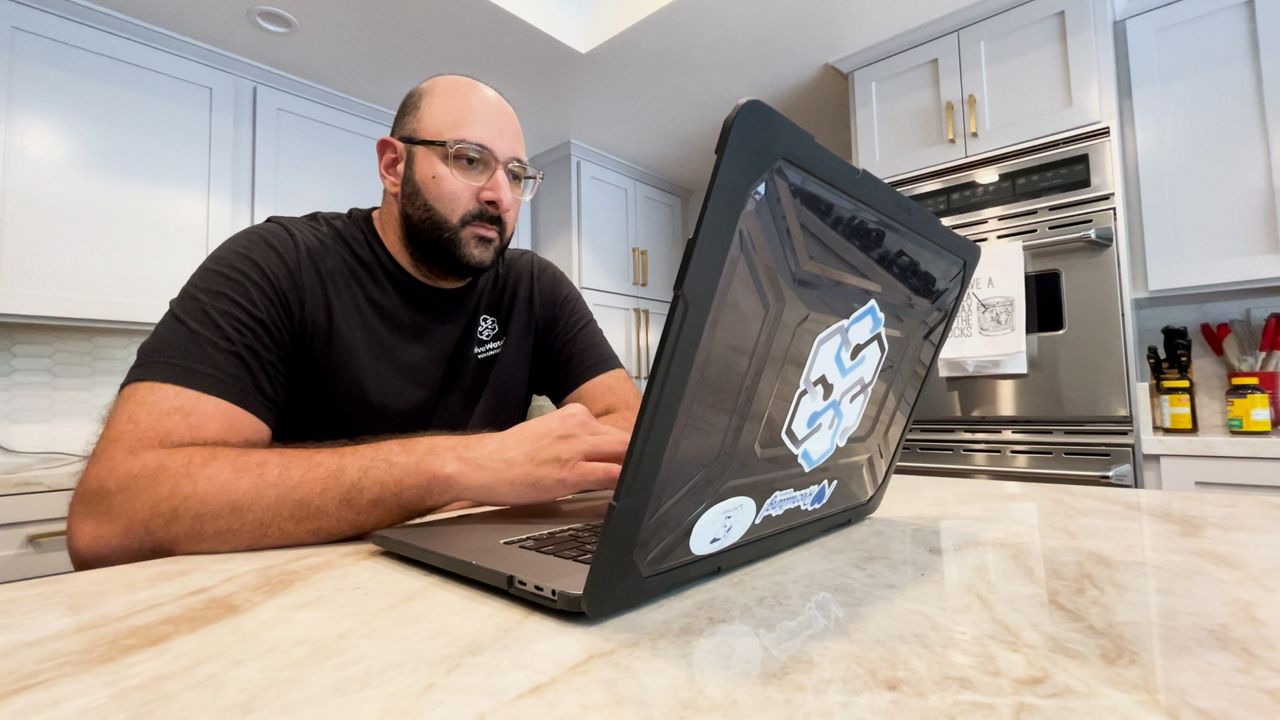AGOURA HILLS, Calif. — Shooting hoops in his driveway is just one of many things Cameron Khani no longer takes for granted.
“Each year that adds on, just gives you a little bit more peace of mind and you see the light at the end of the tunnel,” he said.
Just months before his wedding day, Khani was diagnosed with testicular cancer.
“One testicle was a lot larger than the other. I just started a new job, and I was waiting for the insurance to kick in,” Khani said.
He says that insurance literally kicked in while he was on the operating table. Doctors successfully removed his left testicle, but follow-up scans showed the cancer had already spread to lymph nodes behind his abdomen.

“The worst thing you can do is let something bring you down where you can’t get out of it. I just kind of flipped the switch where I was in survival mode a little bit,” Khani said. “I think I got 10 to 15 different opinions. A lot of them said chemo. Some said radiation, but I kept hearing about this doctor, Dr. Sia Daneshmand, at USC.”
Daneshmand, an urologist and surgeon with Keck Medicine of USC, had been involved with a clinical trial to see if surgery alone was a better outcome to remove the affected lymph nodes.
“Over about a three-year period, more than 80% of patients were cured with surgery alone,” Dr. Daneshmand said.
He says Stage II Seminoma makes up about 15% to 20% of testicular cancer cases in the U.S.. While it’s generally treatable, because it mostly affects young men between the ages of 15 and 35, Dr. Daneshmand says the new treatment protocol avoids negative long-term side-effects of chemo or radiation.
“It’s really the long-term side effects we’re concerned about. There is some high-pitch hearing loss, for instance. There’s some kidney damage that can occur, but more importantly, things that would affect your life span would be secondary cancers developing,” Dr. Daneshmand said.
He says the surgery is minimally invasive. Only one small incision made through the side of the abdomen, and Khani was amazed at his own recovery.
“Within a week, I was close to my normal self. Within two weeks, I was actually back to work, and I thought I’d be out of work maybe three or four weeks,” Khani said.
“He’s an angel. He really saved my life, and I would do whatever I could to spread the word about what he’s doing,” he said.
Khani has now been in remission for more than seven years now, but his biggest reward is coming next year.
“A baby daughter is due late February, early March,” he said.
A proud father-to-be, encouraging other young men to consider all their options.
Let Inside the Issues know your thoughts and watch Monday through Friday at 8 and 11 p.m. on Spectrum News 1.



